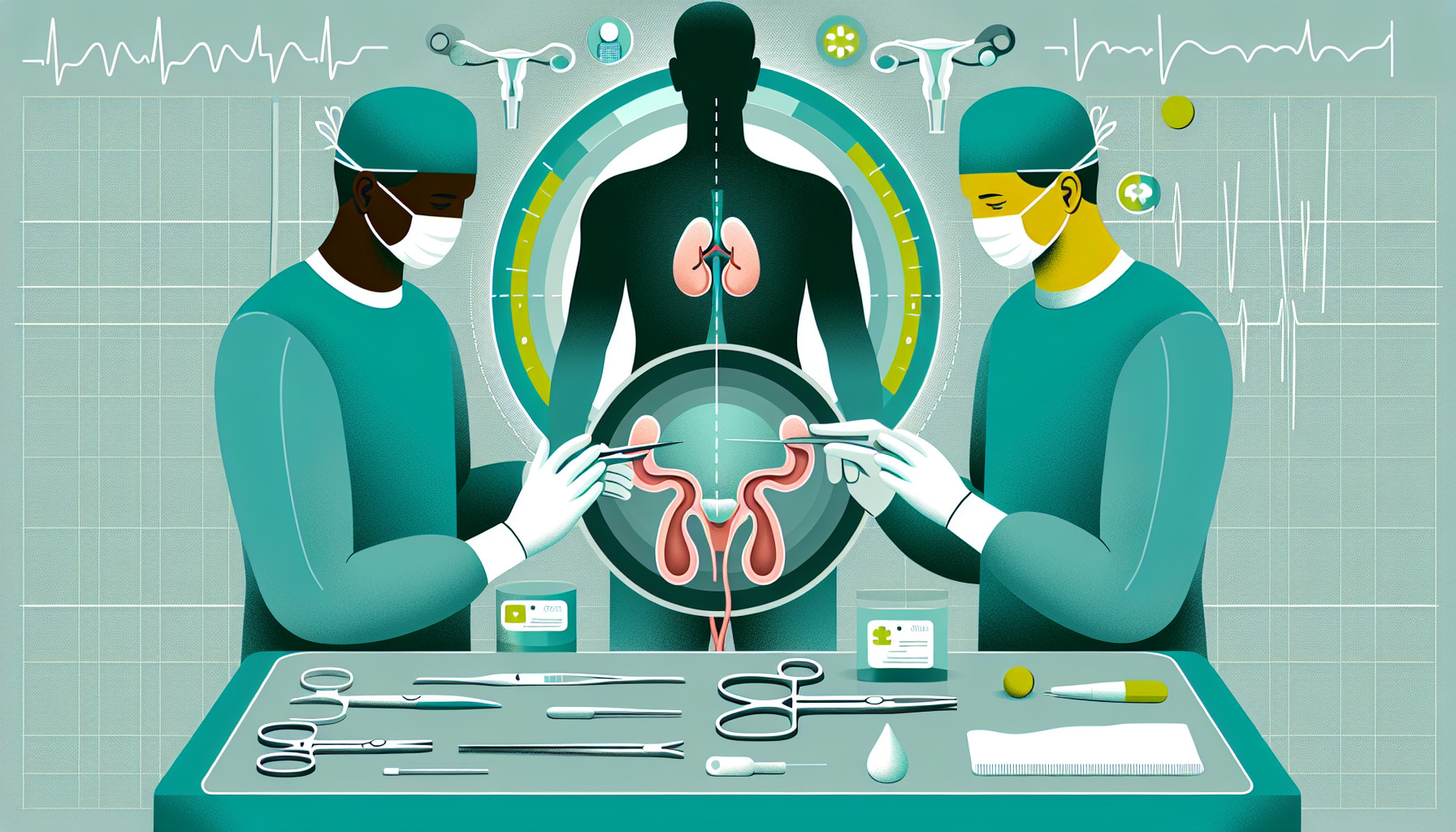Our Summary
This research aimed to understand how delays in a specific treatment for bladder cancer, known as radical cystectomy, impact patient survival. The scientists conducted a review and analysis of 19 previous studies (involving over 17,000 patients) that they found by searching medical literature databases. They discovered that a longer gap between when the cancer diagnosis was made and when the treatment was provided resulted in a higher risk of overall death for the patients. However, they also found a lot of variation in how the previous studies defined a ‘delay’. So, the key message here for doctors and patients is that timely treatment, specifically radical cystectomy, is crucial for better survival rates in bladder cancer patients. Therefore, it’s important to manage factors like other existing illnesses and scheduling of the treatment to avoid unnecessary delays.
FAQs
- What was the main focus of the research on bladder cancer treatment delays?
- How does a delay in the treatment of bladder cancer, specifically radical cystectomy, impact patient survival?
- Why is it important to manage factors such as other existing illnesses and treatment scheduling in bladder cancer patients?
Doctor’s Tip
A helpful tip a doctor might tell a patient about cystectomy is to ensure timely treatment to improve survival rates. It is important to manage factors such as existing illnesses and scheduling to avoid unnecessary delays in receiving radical cystectomy for bladder cancer.
Suitable For
Patients who are typically recommended cystectomy include those with advanced or aggressive bladder cancer that has not responded to other treatments such as chemotherapy or radiation therapy. Additionally, patients with recurrent bladder cancer or those with muscle-invasive bladder cancer may also be recommended for cystectomy. Patients who have a high risk of the cancer spreading or recurring may also be candidates for cystectomy. Ultimately, the decision to undergo cystectomy is made on a case-by-case basis by a multidisciplinary team of healthcare providers.
Timeline
Before cystectomy:
- Patient experiences symptoms such as blood in the urine, frequent urination, and abdominal pain.
- Patient undergoes tests such as a cystoscopy, biopsy, and imaging studies to diagnose bladder cancer.
- Treatment options are discussed with the patient, including the possibility of radical cystectomy.
- Preoperative preparation is done, including counseling, imaging studies, and blood tests.
After cystectomy:
- Patient undergoes surgery to remove the bladder and possibly other surrounding tissues.
- Recovery period in the hospital, which may include pain management, monitoring for complications, and physical therapy.
- Adjustment period to living without a bladder, including learning to use a urinary diversion system or considering reconstruction options.
- Follow-up appointments with the healthcare team for monitoring, possible adjuvant treatments, and support for managing any side effects or complications.
- Long-term follow-up for surveillance of cancer recurrence and overall health maintenance.
What to Ask Your Doctor
- What is a cystectomy and why is it recommended for my bladder cancer treatment?
- What is the optimal timing for undergoing a cystectomy after a bladder cancer diagnosis?
- What factors can cause delays in receiving a cystectomy and how can they be managed?
- How will delaying a cystectomy impact my overall survival and treatment outcomes?
- Are there any alternative treatment options to consider if a cystectomy is delayed?
- What are the potential risks and complications associated with a cystectomy procedure?
- How can I prepare for a cystectomy and what can I expect during the recovery process?
- What follow-up care and monitoring will be needed after undergoing a cystectomy?
- Are there any lifestyle changes or precautions I should take after a cystectomy to prevent complications?
- Can you provide me with information or resources to learn more about cystectomy and its role in bladder cancer treatment?
Reference
Authors: Russell B, Liedberg F, Khan MS, Nair R, Thurairaja R, Malde S, Kumar P, Bryan RT, Van Hemelrijck M. Journal: Eur Urol Oncol. 2020 Apr;3(2):239-249. doi: 10.1016/j.euo.2019.09.008. Epub 2019 Oct 23. PMID: 31668714
